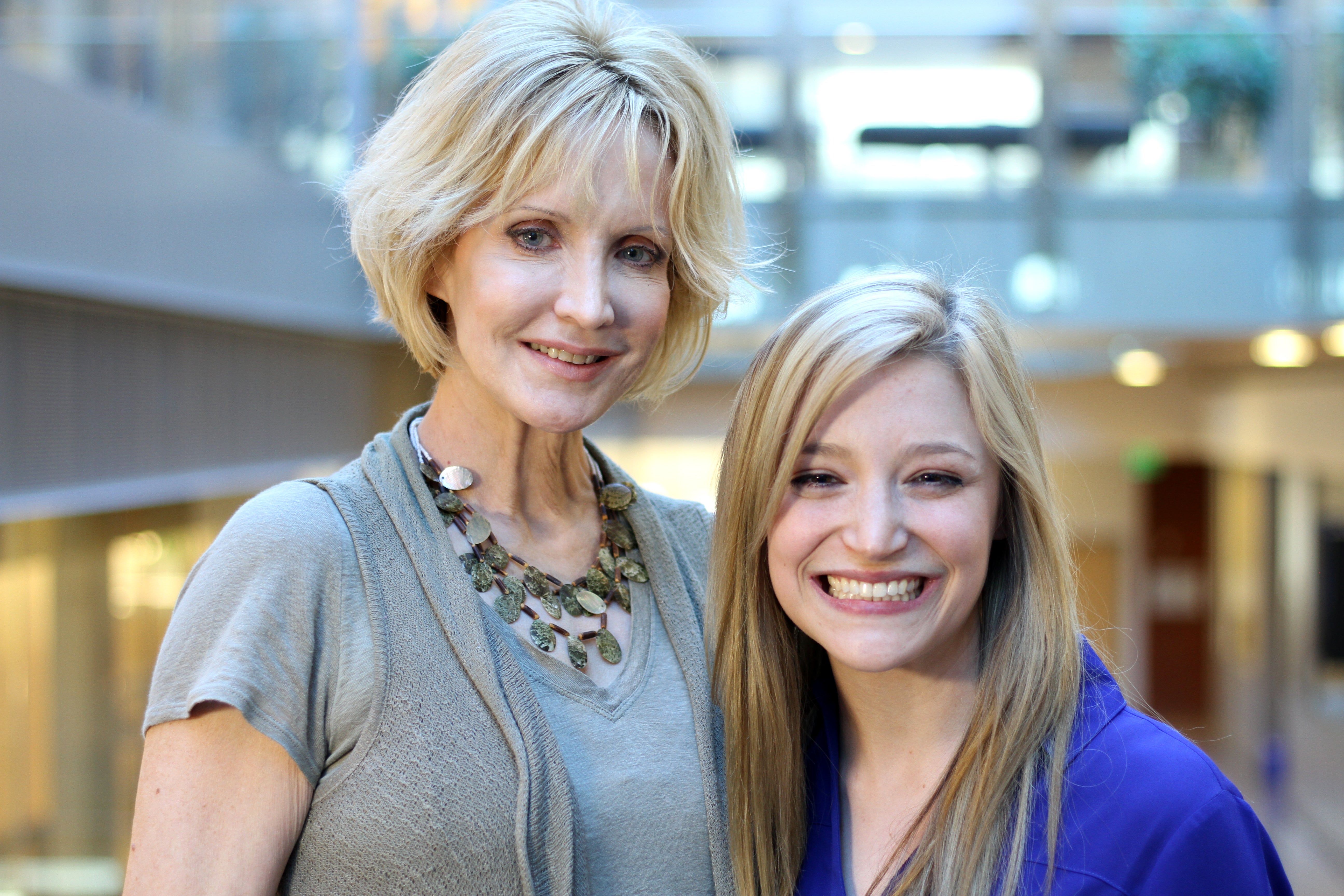Out of this world

Breanne McCarthy is the ASU Class of 2016 Barrett, the Honors College representative.
Editor's note: This is part of a series of profiles for spring 2016 commencement. See the rest here.
Breanne McCarthy’s undergraduate experience was out of this world — literally.
During her first year at ASU, McCarthy found an opportunity to work in astrobiology in Cheryl Nickerson’s lab at the Biodesign Institute.
“My first study with Dr. Nickerson’s lab was really cool because we were studying ... how the spaceflight environment will change bacterial resistance or susceptibility to antibiotics,” said McCarthy, who is graduating this spring with a degree in biological sciences from the College of Liberal Arts and Sciences. “I actually got to lead a teleconference with our collaborators at NASA.”
She informed the NASA collaborators about the results of their research and how that was going to influence astronaut health in space. On top of accumulating a few mission patches when their experiments went to the International Space Station, McCarthy has earned a double BS in biological sciences and biochemistry and has earned the Moeur award for academic excellence.
“I have always loved science, and think it is amazing that you can create new knowledge through research,” said McCarthy. “The incredible opportunities for research were one of the biggest factors that brought me to ASU.”
She also loves helping people. In her free time, McCarthy served as the president of the Barrett Leadership and Service Team. Once a week BLAST students tutored low-income and homeless kids.
“Outside of ASU, I volunteer with kids at the Child Crisis Arizona, which is an organization that takes care of kids who are in the foster system who have not yet been placed with a foster family. I really love working with those kids; they’re awesome. I also volunteer at the SHOW clinic, which is a completely student-run and free clinic for the homeless every Saturday.”
McCarthy is also the Barrett, the Honors College Class of 2016 representative, so she facilitated class bonding and put together different activities for the honors class. With her research and service obligations, how did she possibly find the time to get her school work done?
“I think the most important thing is, I’m really passionate about what I do. I don’t do anything that I am not interested in,” McCarthy said, “I love being in the lab and I love working with the kids who I volunteer with, so it never feels like it’s taking away from all the time that I have. I think that motivates me to do all of my school work, because I know it’s all bringing me towards my eventual career.”
McCarthy (right) pictured with ASU astrobiologist Cheryl Nickerson.
McCarthy will start studying to be a physician next year and has received acceptance letters from nine prestigious medical schools, including Harvard, Johns Hopkins and her hometown St. Louis University.
“I’ve always loved science throughout my life, and I think of medicine as a great way to combine a love of science with the love of helping people,” she said.
McCarthy was only 4 years old when she first thought that she wanted to be a doctor. For Halloween that year, she dressed up in a doctor’s coat adorned with a name tag that read “Dr. Breanne."
“Obviously I didn’t really understand what medicine was at that point — I had to explore it later on,” McCarthy said, “but that was when I first decided.
The event that solidified her chosen career happened when she was in high school. While shadowing an emergency medicine physician at a St. Louis hospital, McCarthy encountered a woman who had just had a stroke. She looked frightened, unable to speak. The woman continued to try and speak, but no words came.
“The physician that I was shadowing went over to her and sat down and held her hand. He said, ‘You are the most important thing to me right now. I’m going to do everything I can to take care of you.’”
He was very busy at the time, with many other patients and other responsibilities, and yet he took the time to sit with her for as long as the woman needed, reassuring her until she calmed down, McCarthy said.
The physician pulled McCarthy aside after they left the room and told her that the difference between a good doctor and a great doctor is not just the clinical medicine. A great doctor will realize when a patient needs more, and will take the time to be there for him or her as a person.
“So that was when I realized that I definitely wanted to be a physician. I guess I kind of always wanted to do it before then — I had explored it — but that is when I realized being able to combine my love of science with my desire to help people directly through medicine was what I wanted to do.”
More Science and technology

ASU-led space telescope is ready to fly
The Star Planet Activity Research CubeSat, or SPARCS, a small space telescope that will monitor the flares and sunspot activity…

ASU at the heart of the state's revitalized microelectronics industry
A stronger local economy, more reliable technology, and a future where our computers and devices do the impossible: that’s the…

Breakthrough copper alloy achieves unprecedented high-temperature performance
A team of researchers from Arizona State University, the U.S. Army Research Laboratory, Lehigh University and Louisiana State…


